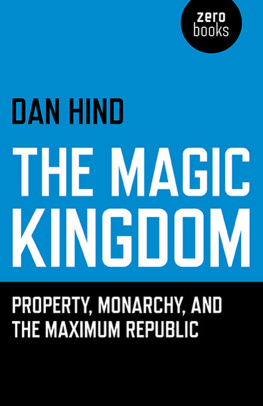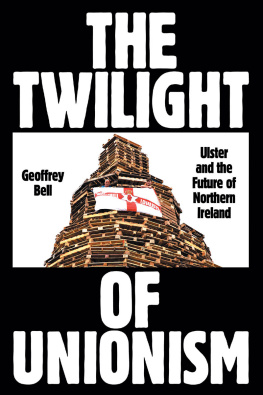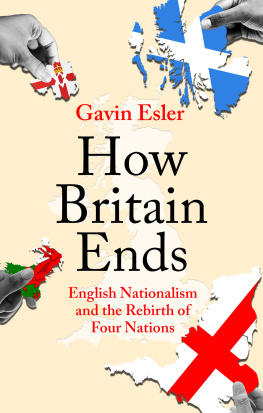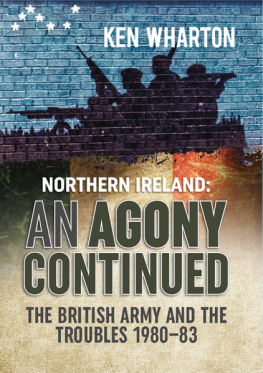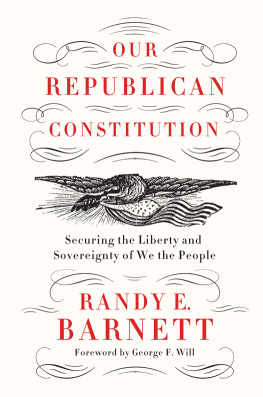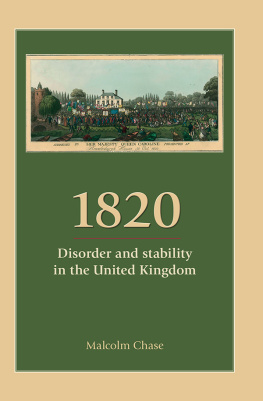First published by Zero Books, 2014
Zero Books is an imprint of John Hunt Publishing Ltd., Laurel House, Station Approach, Alresford, Hants, SO24 9JH, UK
www.johnhuntpublishing.com
www.zero-books.net
For distributor details and how to order please visit the Ordering section on our website.
Text copyright: Dan Hind 2014
ISBN: 978 1 78279 403 5
All rights reserved. Except for brief quotations in critical articles or reviews, no part of this book may be reproduced in any manner without prior written permission from the publishers.
The rights of Dan Hind as author have been asserted in accordance with the Copyright, Designs and Patents Act 1988.
A CIP catalogue record for this book is available from the British Library.
Design: Stuart Davies
Printed and bound by CPI Group (UK) Ltd, Croydon, CR0 4YY
We operate a distinctive and ethical publishing philosophy in all areas of our business, from our global network of authors to production and worldwide distribution.
For my brother, Matthew
Prologue
A Constitutional Crisis
The cleverest politician cannot subjugate those who only wish to be free.
Jean-Jacques Rousseau
When Britains finance-dominated economic model collapsed in 2007 and the state bailed out the banks, what in normal times passes unremarked became undeniable. The state is the single most important factor in determining the distribution of material goods within the territory it controls. Through the operations of the central bank and the institutions of law enforcement, the state stood revealed as the ultimate arbiter of outcomes in the economy. The state enabled grand larceny in the financial sector and then coordinated the getaway.
Mainstream coverage has shied away from what the collapse taught us. Rather than denying what is plainly true those who dominate public speech have taken refuge in nonsense. The BBC tells us that quantitative easing is like putting imaginary petrol in our cars. It is a symptom of the crisis in which we find ourselves that public speech regularly descends into desperate euphemism and appeals to magical thinking.
But despite all the extravagantly misleading analogies, the secret is out. The state allocates rewards and applies penalties. It inflicts pain and confers pleasure, exults some character types and forms of conduct, degrades others. It seeks to determine who knows what, and who can speak with some expectation of being heard. Around it congregate legitimating stories that are also tickets to sustenance for the tellers. The state seethes with mutually reinforcing fictions and fantasies. These stories form part of the state. They are how business is conducted, how the show goes on.
The state is avid for facts about the population and energetically infiltrates a nominally independent civil society. It finds, and lavishly rewards, partners in a nominally private economy. As I write, civilized men and women in official agencies are doing their best to ensure that nothing threatens what they understand to be national security. Yet their account of what constitutes national security is as secret as their work to defend it.
The bailout of the financial sector and the subsequent revelations of widespread criminality in the political and economic directorate mark the beginning of a constitutional, as well as an economic, crisis. After all, bankocracy is a form of the state and replacing it will entail deep constitutional change. This is not widely acknowledged in the easily available circuits of communication. Instead we have been subjected to an energetic exercise in distraction, in which themes that appeal to an unreformed public opinion are being mobilized to prevent the obvious from becoming politically relevant.
Our current arrangements can no longer be defended by anything resembling a reasonable argument. And those who dominate speech no longer try. Instead they use a mixture of cheap tricks and esoteric learning to keep the population befuddled and divided. The Coalition government has pitted public sector workers against private sector workers and mobilized resentment against welfare recipients and immigrants. The Labour opposition has refrained from questioning the fundamentals of the governments programme and has been content to wait until the 2015 election, when it will promise hope and change without troubling voters with too many details. It can scarcely afford to be too explicit, given its own responsibility for the financial sectors wholesale collapse, and its continuing commitment to a political settlement that converts public passivity into extravagant financial sector profits.
Though this shared crisis management has so far been successful, there are grounds for thinking that it is the kind of success that begets failure. The state is openly acting to preserve the power and wealth of the financial sector. The financial interest has become, in the official mind, the national interest. For politicians to talk about market forces and administrative expertise now seems ridiculous. Their efforts to impersonate the ruled are falling flat.
In a system that prides itself on its representativeness this is a problem. People are on the brink of wondering if the state that underpins and protects a few favoured interests might be remade as an instrument for securing the common good. They will remain on the brink for years yet. This is the heart of the constitutional crisis: we no longer recognise the impersonation of the national mood offered by Parliament via the BBC.
How this crisis is resolved will determine the future of the country. The odds will always favour what R.H. Tawney called the oldest and toughest plutocracy in the world. But the outcome is only foregone if we decide that it is. The current arrangements are indefensible and we all know it. Perhaps there is nothing we can do to change them. But not to try, not to draw on every resource we have, seems too disgusting to contemplate.
Introduction
The Needs of Oligarchy
We have been taught not to like things. Finally somebody said it was
OK to like things. This was a great relief.
David Byrne
This book argues that republican doctrines and habits of mind provide valuable resources for those who want Britain to become more democratic, more equal, and more truly prosperous. They also provide a means of uniting the fragmented majority that wishes an end to bankocracy and the regime of crime. It sets out to convince by first subjecting the existing constitution to a process of destructive description, and by then drawing the outlines of a modern republican constitution. Anything useful will be soiled with much use. Republicanism is no exception and, if The Magic Kingdom is to persuade, it must scrape away some of the junk.
The argument does not concern itself much with the monarchy. But the standard meanings of the words republic and republicanism in British English oblige me to say something about the Crown. It is never easy to forget that Britain has a crowned head of state. In 2012 the Diamond Jubilee and the London Olympics made it impossible. We saw our Queen on a barge on the Thames and apparently leaping from a helicopter into the jamboree for the New Jerusalem that was the games opening ceremony. The Prime Minister David Cameron made the connection explicit in his New Year message in 2012:
The coming months will bring the global drama of the Olympics and the glory of the Diamond Jubilee. Cameras and TV channels around the planet will be recording these magnificent events. It gives us an

